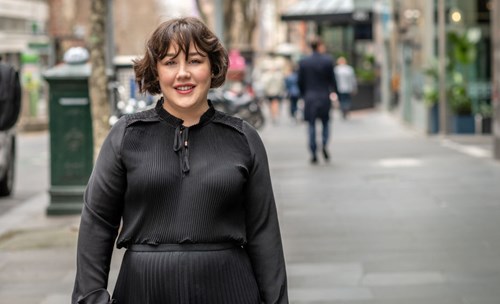Child inclusive Family Dispute Resolution (FDR)

Family Dispute Resolution (“FDR”) (or mediation) is a process where parents attend a qualified mediator who will assist them in finding arrangements that work best for their children and the family. Child inclusive FDR is exactly what it sounds like – dispute resolution between parents that takes into consideration the child’s point of view.
Child inclusive FDR vs regular FDR
The process for most child inclusive FDR is slightly different from normal FDR.
In regular FDR, parties will attend a qualified mediator to discuss their situation and come to an agreement about parenting arrangements. For child inclusive FDR, this still happens, but the child/ren separately attend a qualified child consultant to express their views, hopes, worries, and needs.
Child inclusive FDR is not a mediation where the children are present and participate in the mediation alongside their parents. The aim is to go through the FDR process while keeping the best interests of the children (and their needs) at the centre of the discussions.
The role of child consultants
Child consultants are professionals who have extensive experience working with children; their emotional and developmental needs and how to best support them during separation. They usually have a background in either behavioural sciences, social work and/or psychology.
They have an entirely separate role to the mediator. Child consultants meet with the child/ren without the parents present, to talk about the child’s experiences of the family separation and dispute. They are trained to do this in a way that ensures that the children do not think that the burden of decision-making falls on them. Through this process, children have the opportunity to feel that they have been validated and listened to, but not that it is their responsibility to fix the issues between their parents.
What happens during child inclusive FDR?
The child inclusive FDR process can change slightly depending on the service provider (the child consultant). Usually though, the process of child inclusive FDR will be as follows:
1. Intake sessions
The parents attend separate intake sessions where the service provider can determine whether the mediation process (and, by extension, the child inclusive mediation process) is suitable.
It may be determined that FDR is inappropriate for a number of reasons including family violence, the genuine willingness of one or both parties to participate, or other relevant factors.
2. Child consultant session/s
The child/ren will attend a separate session (without the parents) with an experienced child consultant to discuss their experience of the family separation.
Siblings usually attend the child consultant separately but depending on the circumstances, they may be able to attend the child consultant together.
3. Feedback
Feedback from the child consultant session is given to the parents, either directly from the child consultant themselves or relayed through the mediator.
The child consultant will normally not relay verbatim (word-for-word) the discussions they have had with the child/ren. They will instead talk generally about what the separation has been like for the child/ren, what has been going well, what could use improvement, and how the parents can best support them in the future.
4. Mediation process
Parents engage in the regular mediation process having received this feedback (either with just the mediator or with both the mediator and child consultant present), with the aim of keeping the children’s best interests and developmental needs at the forefront of the discussions.
If necessary, sometimes throughout the mediation process (which will usually be 2 – 3 sessions), it may be agreed that the parents and children would benefit from a second or interim child consultant session. This will be determined on a case-by-case basis.
5. Follow up child consultant session
Whether or not an agreement is reached, children are sometimes offered the opportunity of a ‘follow-up’ session. This session is between the child and the child consultant to explain and share outcomes and messages from their parents now that the mediation process has concluded.
Is child inclusive FDR appropriate for my family?
Before commencing the child inclusive FDR process, the child consultant and mediator will confer to determine whether it is appropriate to proceed.
Usually, child inclusive FDR is available for families with children over the age of five (5) years old. However, it depends entirely upon the individual circumstances of each family, including the maturity level of the children, the relationship between the parents and any other relevant circumstance.
Where the child inclusive model is determined to be inappropriate for a family, it is for the service provider to determine whether to explain the reason this is the case to the parties. It may be that it is the policy of the service provider that no explanation be given.
Is child inclusive FDR confidential?
Like most family dispute resolution, anything said to, or in front of a child consultant is confidential. The usual exceptions to this rule apply, such as to prevent a threat to someone’s life or health, the commission of a crime or an allegation of child abuse.
Generally speaking, however, what is said during child inclusive FDR cannot be used as evidence in court. This includes what the child says to the child consultant.
How can I attend child inclusive FDR?
More and more organisations are offering child inclusive FDR. Families have the option of attending a private family dispute resolution practitioner or attending a government-funded organisation. Whether or not the service provider provides child-inclusive FDR is specific to each organisation, practitioner and location – but it doesn’t hurt to ask!
Government-funded FDR services can be found on the Family Relationships Online – Find Local Help search function or by calling the Family Relationship Advice Line on 1800 050 321.
Private family dispute resolution practitioners can be found through the Family Dispute Resolution Register.
How a family lawyer can help
For separating couples, the intention to engage in child inclusive FDR is usually a sign that they intend to co-parent while keeping their children’s best interests at the centre of their negotiations.
However, the mediation process can be complicated. Even the best of intentions does not guarantee a seamless mediation process. Often, parents will disagree on what the best interest of their children are – even when they have insight from the child consultant as to the needs and wants of their children.
Having a consultation with a family lawyer can help you understand what to expect from the mediation process and help determine what a legally appropriate agreement might look like in your circumstances.
Contacting Smith Family Law
This article is of a general nature and should not be relied upon as legal advice. If you require further information, advice or assistance for your specific circumstances, please contact Smith Family Law.

